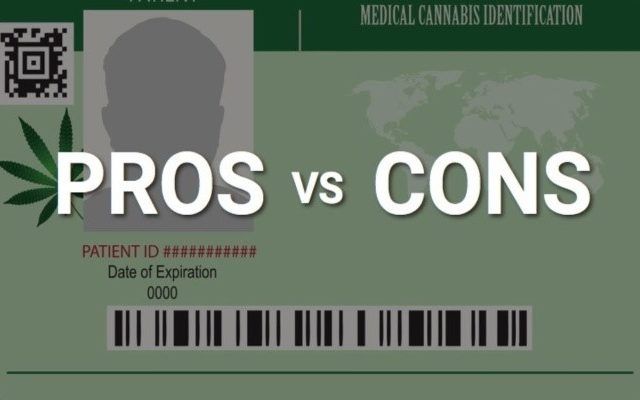Medical Marijuana Card and What you Need to Know
Even though cannabis continues to remain federally illegal within the United States, there are many states that have legalized cannabis for a number of valid medical applications.
Several states as well have legalized recreational cannabis for adult-aged consumers.
To qualify for medical cannabis, the applicant is required to be diagnosed with one of the ailments included in the state’s list of conditions that qualify for medical marijuana.
With a recommendation in hand from a licensed physician, the applicant can obtain an MMJ card or the authorization to visit a dispensary to purchase cannabis and related products.
For those residing in states where recreational cannabis is legal, a medical marijuana card is not required to visit or purchase from a dispensary. Although, without a medical card, in some cases, you may be unable to purchase some products as some may be reserved for medical marijuana cardholders only.
Despite cannabis being illegal in the eyes of the federal law, state-ran MMJ programs have sprouted quicker than dispensaries on the West coast.
The key to reaping the benefits of cannabis is by obtaining a marijuana medical card, sometimes called a weed or cannabis card.
As of July this year, 33 states have passed medical marijuana laws, including Washington D.C.
California, the first state to approve medical marijuana, California paved the way for nationwide reform with their passage of the Medical Use of Marijuana Initiative in 1996. Since, many states have begun to legalize medical marijuana and have implemented cannabis-specific laws regulating its use for medical purposes.
While the stipulations for obtaining a marijuana medical card vary state to state, familiarizing yourself with the common procedures of acquiring on will allow you to make an informed choice on whether it’s the right option for you.
To help you with that choice, we’ll give you an introduction.
What’s a Marijuana Medical Card?
An MMJ card is a state-issued identification permitting patients to acquire marijuana products from dispensaries for the purpose of treating ailments and conditions. In medical-only states, consumers without a marijuana medical card are unable to enter dispensaries.
In some medical-only states, an MMJ card provides proof that they, by law, are allowed to grow and cultivate a pre-defined number of marijuana plants, or to use medical-cannabis delivery companies. In some states, an MMJ cardholder can approve a caregiver to purchase the cannabis on their behalf, in addition to granting permission to have the healthcare giver administer and grow the cannabis.
Keep in mind; regulations surrounding marijuana vary greatly from region to region. For example, California and Colorado-based patients have near-limitless options and access to a number of medical-grade cannabis products and centers. But, states such as Texas, which isn’t as weed-friendly, patients don’t have as many options due to stricter programs and regulations.
Some states only permit cannabis to be used in the form of a pharmaceutical derivative while others require a patient to exhaust all conventional forms of treatment before using medical cannabis.
Should I apply for an MMJ Card? Pros and Cons
If you live in a medical-only state where recreational cannabis isn’t legal, a medical card is a must-have offering a range of benefits.
As a medical marijuana cardholder, you’ll have access to quality-grown cannabis from dispensaries that rigorously test their crops for mold, impurities, and pesticides (unlike that of black market-sold cannabis),
Furthermore, a marijuana medical card will grant you access to a vaster selection of marijuana products that are labeled with the content amounts of cannabidiol (CBD), THC, and other cannabinoids you otherwise wouldn’t know about. This makes it easier to identify the ingredients and will help you to better monitor and track dose amounts.
However, perhaps being the best perk of having an MMJ card; you’ll be able to discover specific and accurately-labeled strains beneficial to your specific needs.
There are a few arguments that could be made against acquiring an MMJ card in recreationally-approved states.
For one, if the wait time and application fee are lengthy, it may be better to just walk into a dispensary and purchase cannabis without one, assuming you’re 21 years of age or older.
Some may be hesitant to share their information and to have it stored in dispensary databases. Some do concern themselves with this as to this day, despite widespread legalization, cannabis has continued to have a cloud of stigma surrounding it, which may deter some from applying for the card.
Aside from these factors, patients can still enjoy a number of benefits by holding a marijuana medical card, including:
- The patient can receive treatment and cannabis advice from their physicians in and dispensary budtenders, which helps with identifying strains known for treating ailments the patient struggles with.
- In regions where marijuana is legal for adults, those holding a marijuana medical card have access to marijuana products that are more potent than those sold in recreational markets.
- Usually, medical-only products are cheaper and are often sold at a reduced tax rate.
- Having a medical card allows access to delivery services that are required by law to only deliver to cardholders.
Some state-ran programs that are designed for adult-only use, most medical-only programs do accept applicants aged 18 or older.
When it comes to minors in medical states, they can receive one so long as they have a guardian’s permission and a condition treatable by medical marijuana.





